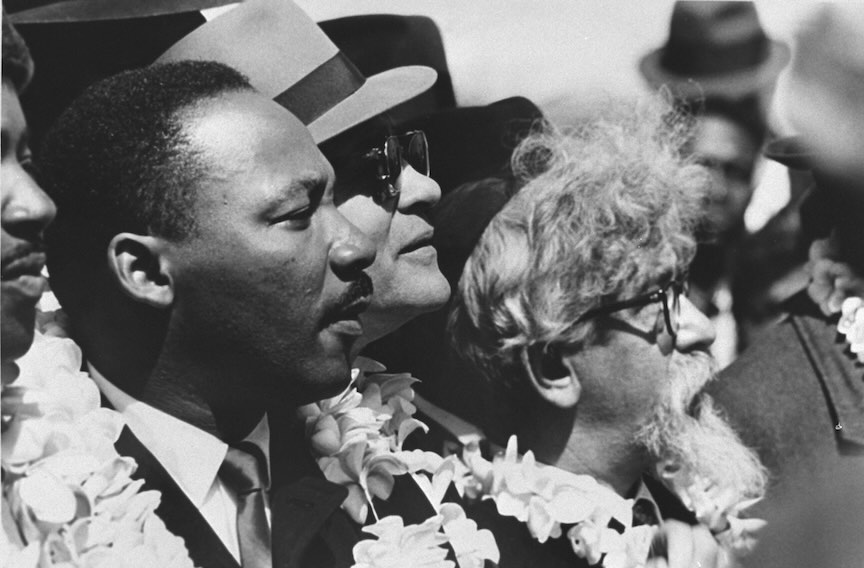1968 Martin Luther King Assassinated

On April 4, 1968, Martin Luther King, Jr.-- the leader of the Civil Rights movement-- was assassinated in Memphis, Tennessee. Following the assassination, rioting broke out in most cities across the nation.
On April 4, 1968, Martin Luther King Jr., the leader of the Civil Rights Movement, was assassinated in Memphis, Tennessee. King was in Memphis to support a strike by African American sanitation workers who were protesting against low wages and poor working conditions. King had been advocating for nonviolent resistance to racial segregation and discrimination throughout the United States, and he had become one of the most prominent figures in the fight for civil rights.
King was staying at the Lorraine Motel in Memphis, and at 6:01 p.m., while standing on the balcony outside his room, he was shot by a single bullet. The shot was fired by James Earl Ray, a fugitive from the Missouri State Penitentiary. The bullet struck King in the jaw and traveled down his spinal cord. King was immediately rushed to St. Joseph's Hospital, where he was pronounced dead at 7:05 p.m. He was 39 years old at the time of his death.
The news of King's assassination sent shockwaves across the United States and the world. King had been a symbol of hope and peace for millions of people, and his death was seen as a devastating blow to the Civil Rights Movement. President Lyndon B. Johnson declared April 7, 1968, a national day of mourning in King's honor.
Following the assassination, riots broke out in cities across the nation. The anger and frustration that had been building among African Americans over years of racial injustice and inequality erupted into violence. Over 100 cities experienced rioting, looting, and arson, with Washington, D.C., Chicago, Baltimore, and Kansas City among the most affected. The National Guard and federal troops were deployed in several cities to restore order.
In Washington, D.C., rioting began on the night of April 4 and continued for several days. The violence resulted in 12 deaths, over 1,000 injuries, and extensive property damage. The U.S. Army's 3rd Infantry Regiment was called in to protect the Capitol and the White House. In Chicago, the unrest led to the deaths of 11 people, with more than 2,000 arrests and significant damage to the city's West Side. Baltimore saw six people killed, 700 injured, and more than 5,800 arrested.
The widespread riots highlighted the deep racial tensions that existed in the United States. Despite the passage of the Civil Rights Act of 1964 and the Voting Rights Act of 1965, African Americans continued to face systemic discrimination and economic inequality. King's assassination served as a catalyst for the eruption of these frustrations, as many African Americans felt that nonviolent protest had not brought about the necessary changes.
In the aftermath of the riots, there was a renewed push for social and economic reforms to address the issues of poverty and racial inequality. The Kerner Commission, established by President Johnson in 1967 to investigate the causes of urban riots, had warned that the nation was moving toward two separate societies—one black, one white—if action was not taken to address the disparities. King's assassination underscored the urgency of addressing these issues.
James Earl Ray, who fled to Canada and then to Europe after the assassination, was captured at London's Heathrow Airport on June 8, 1968. He was extradited to the United States, where he pleaded guilty to King's murder and was sentenced to 99 years in prison. Ray later recanted his confession, claiming that he had been set up as a scapegoat, but his appeals were unsuccessful, and he remained in prison until his death in 1998.
The assassination of Martin Luther King Jr. marked a turning point in the Civil Rights Movement. While it led to widespread violence and unrest, it also galvanized efforts to continue King's work toward racial equality and justice. The legacy of King's leadership and his commitment to nonviolence continue to inspire movements for social change around the world.
